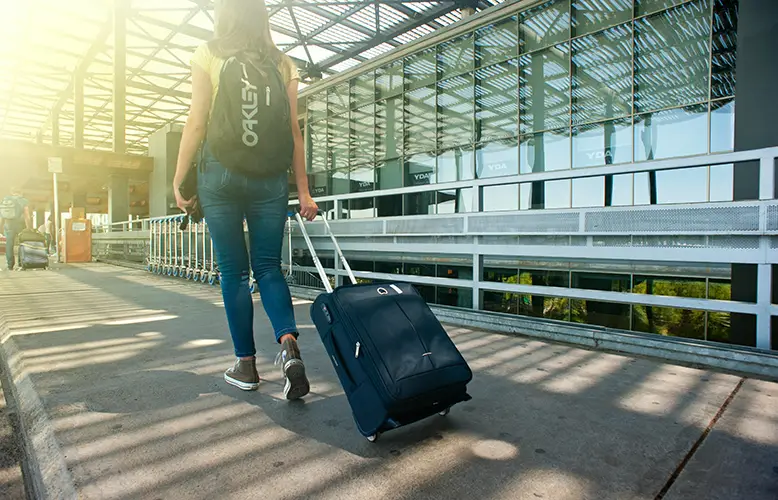
Any traveler can attest to how it opens your mind to the world and challenges your thinking. From experiencing various cultures to the thrill of being in a different location, sometimes a different continent, experiencing multiple challenges is worth it.
But, as a student, are there any ways to make it worthwhile? These travel planning tips highlight what you should do beforehand.
Top 10 Travel Planning Tips for a Student
From adequately researching your destination to familiarizing yourself with your itinerary, here is a list of tips to make your travel experience less anxiety-inducing. Without further ado, shall we?
1. A Budget
Money runs the world, and anyone can travel it with cash. As a student, your limited financial muscle is the gap between you and your freedom to travel.
However, you can still afford to travel, even if it means locally. Budgeting is one financial move you should make before determining where you want to go.
Before settling on a destination, list all your travel expenses, which should include:
Accommodation
Assuming you are a student whose finances are limited and you only have enough for the bare minimum expenses like food, insurance, and hiring an essay writing service, being frugal with your accommodation is not a crime. Lean more towards lower-rated hotels, AirBnBs, or hostels.
Before booking, inquire about student discounts. Doing so will save you a few coins that you can use on other expenses.
Transportation
Survey your transportation options. Prioritize your options based on your budget and your security and comfort.
Food
Remember to underestimate how much food expenses eat into budgets during trips. Have an estimated budget for the food options, whether you intend to explore high-end establishments or street foods and food markets.
Activities
While most travelers know all too well, this includes the little bills that aren’t so little: entry fees to sites, tours, and more. This is why factoring into these costs is important for establishing a budget for time activities.
Other
Budget for the gifts you will be buying during your journey. Not to mention that your budgeting should include a provision for miscellaneous expenses (say extra transportation fees). You do not want to be unprepared in a strange country, given that.
2. Destination

A clearly cut-out budget determines your destination. As a learner enjoying the luxury of traveling the world, let yourself start small.
For a first trip, consider a destination within the country—factor in how friendly the destination will be to you as a student.
3. Transportation
Your budget shall dictate your most viable transport option. Use these strategies to save further on your transportation costs:
Buses and Trains
Opt for this option if your destination has reliable train and bus systems. It is cheaper and more organized, although it is more structural.
Flights
Before booking your flight, compare the charges on Google Flights or Skyscanner. Another hack is keeping your travel dates flexible or booking during the low season.
4. Accommodation
Finding the suitable accommodation can be costly. Nevertheless, a wise choice could save you a significant amount. Depending on your preference, consider these accommodation options:
- Student accommodations
- Hostels
- Airbnb
- Hostels
- Couchsurfing
5. Itinerary
An itinerary clearly outlines your order of events throughout the trip. You can create one or hire a travel agency to curate one. The following factors will dictate the items in your itinerary:
- Your travel dates
- Your flexibility
- The opening hours of the locations
Since your budget is tight, consider affordable or free activities like visiting the museum, parks, and local markets. Prioritize what you spend money on depending on how badly you want to do it and how much you can spare.
6. Smart Packing
Before your trip, be intentional about packing for a smooth and fulfilling experience. As a student, these strategies should come in handy.
Versatile Clothing
You want to carry your only portion of your closet for the few days you will be away. Instead, carry versatile clothes that can be worn in multiple ways to suit diverse weather conditions.
Pack Less
Carry minimal luggage and, if possible, one piece of luggage. Doing so saves you additional charges for checked-in luggage and makes the traveling process easier, especially if you are backpacking.
Tech
Remember to pack your phone charger and fully charged power banks. Carry an extra charger if you can.
Essentials
Ensure to pack your travel documents, identification documents, and essential medicines like painkillers and allergy medication.
7. Connection
Connecting in a foreign land is essential for you, your friends, and your family. Employ these tips to stay connected:
Travel Apps
These apps are necessary for moving around.
Travel Apps: Travel apps should be useful for moving around within the destination and communicating with the locals.
Wi-Fi
Ensure Wi-Fi is available in the accommodation you choose. When walking around, use public Wi-Fi to access the internet and offline maps.
SIM Card
Get an international SIM card to avoid roaming charges while walking around.
8. Student Discounts
Look out for student discounts when preparing for the trip. You will likely land a deal in your transportation, accommodation, and the places you intend to visit. You can spend the money saved from the discounts on your academics by clicking on https://www.metrotimes.com/sponsored/want-to-buy-essay-online-top-10-trusted-writing-services-to-go-for-30728421 or hire an academic service provider.
9. Safety
Regardless of your destination, your safety is your number one priority. These strategies should foster and support your safety:
Alertness
Be wary of your environment, especially in crowded public places. Do not publicly display your valuables.
Emergency Contact
Furnish yourself with the local authorities contact details.
Research
Furnish yourself with information about your destination’s laws, culture, and locations to avoid.
10. Memories
Create as many memories as you can. In addition to the experiences you will have garnered, the photos in your travel journal will store the memories of the trip.
In Conclusion
Planning a trip is not a small feat. However, these tips for travel planning should serve as the checklist you need to prepare for the trip. Tailor makes it to suit your situation for a memorable experience.





